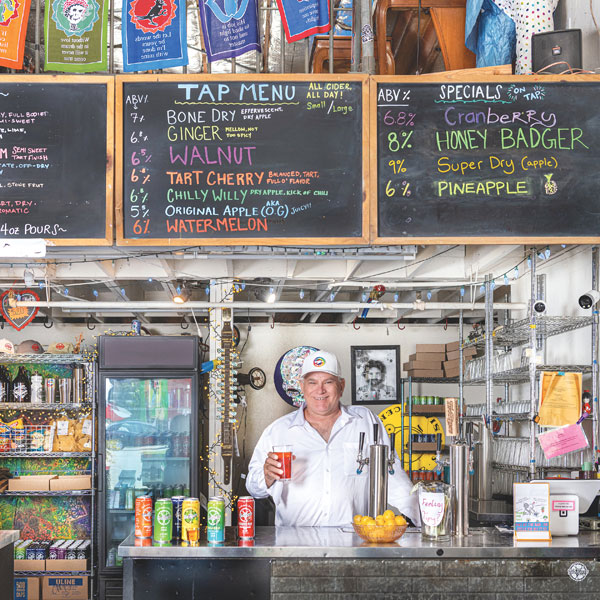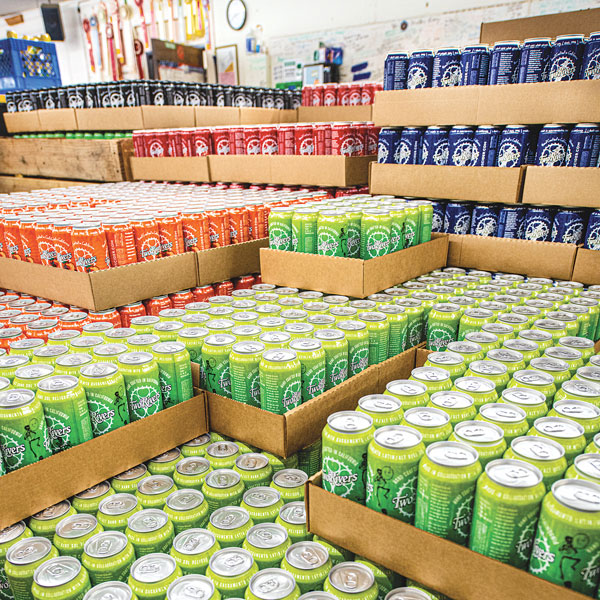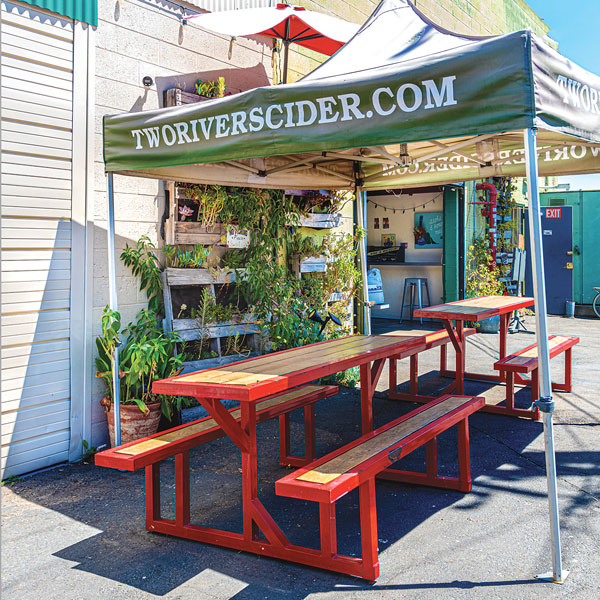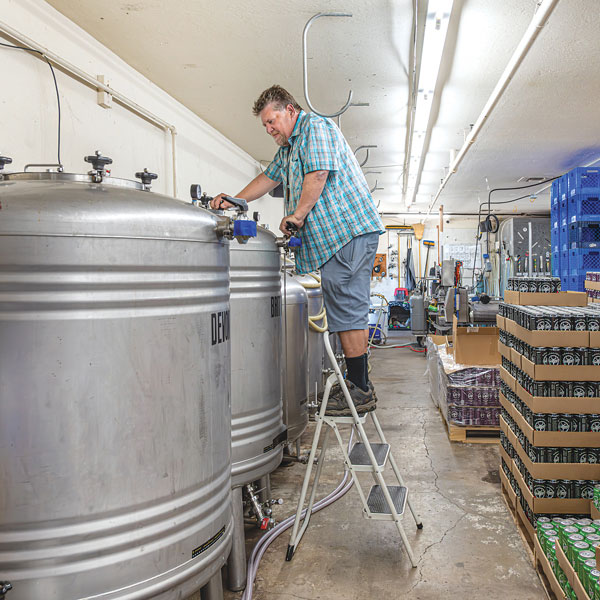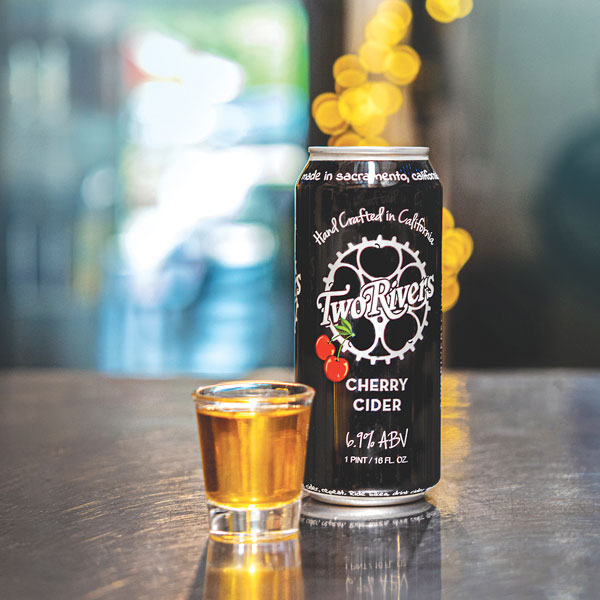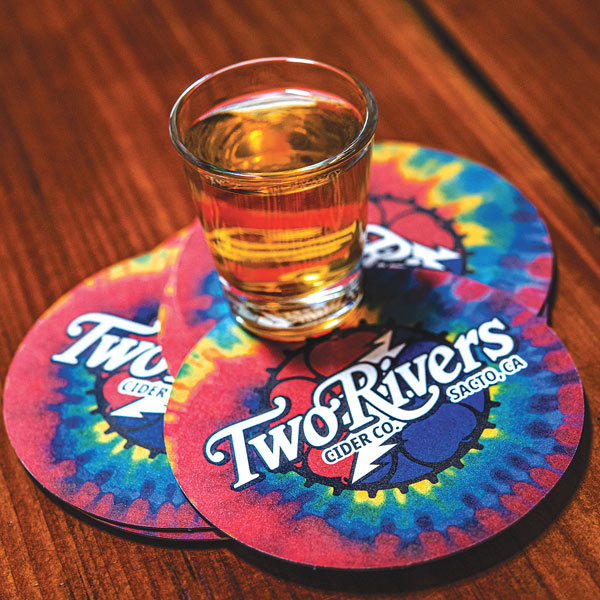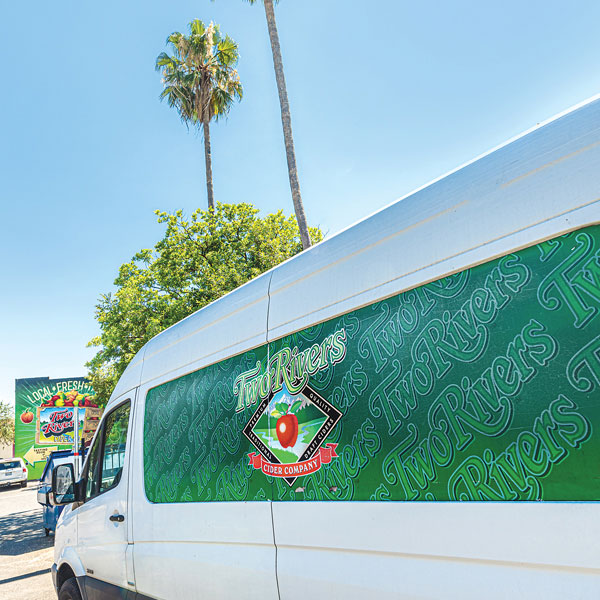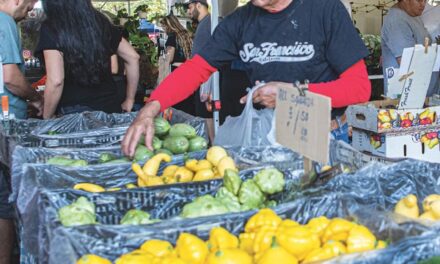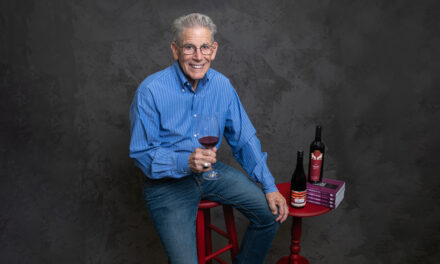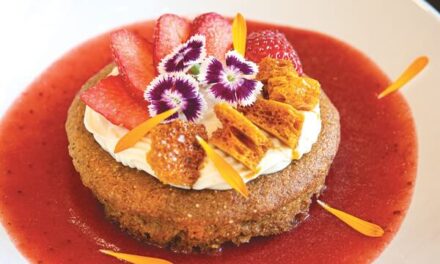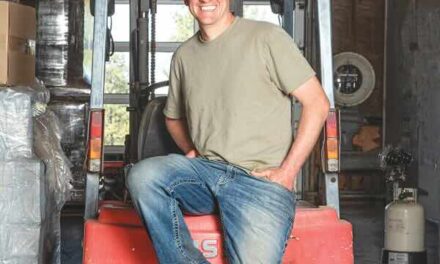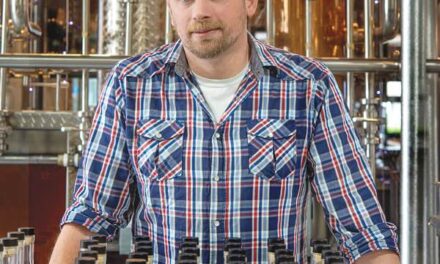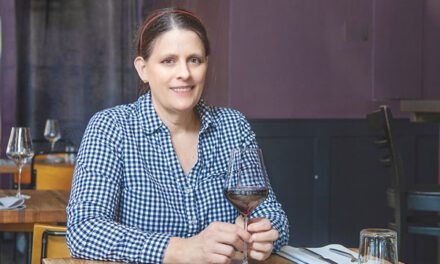Cider Rules
Two Rivers puts local harvest into its drinks
By Gabrielle Myers
August 2024
The local climate produces visionary farm-to-table approaches. You can find a fine example at Two Rivers Cider Co., where the region’s apples, pomegranates, mandarins, yuzus, kumquats, cherries, melons and huckleberries create diverse cider offerings.
Founded in 1996 by Vincent Sterne, Two Rivers in Hollywood Park helped pioneer the cider revolution. As people became more aware of food allergies, cider—gluten-free and with a real fruit base—became the alcoholic beverage of choice for many.
Sterne developed Two Rivers after working at Rubicon Brewing Company. He wanted to start a business in the fermentation industry but wasn’t sure which approach worked best.
After studying winemaking, he recognized the connections with cider making. Sterne decided to focus on cider. He introduced several original and exciting fruit pairings under the Two Rivers brand.
He traveled to England, Spain and France, and studied cider production. With his knowledge of cider, Sterne became a founding member of the American Cider Association, now 6,000 strong.
He marketed and sold Two Rivers ciders to local breweries around Sacramento and the Bay Area. Most sales came from brew pub taps.
The pandemic closed 90% of these accounts. Two Rivers shifted strategies and started selling cider in cans.
Today many supermarkets and beverage stores around Norther California carry Two Rivers cans.
With easy access to orchards around Apple Hill, along with abundant local fruits, Two Rivers has one of the widest selections of cider varieties.
When asked about his favorite Two Rivers ciders, Sterne says he’s “fond of the single varietals, especially the Black Twig and Macintosh apple varieties when I can get them. Another one of my favorites is our Bone Dry. Just apples, fermented.”
My Two Rivers favorites are pomegranate, huckleberry and yuzu. All feature healthy local fruit juices in a dry cider, never too sweet.
From my perspective, poor cider is oversaturated with artificial sugars. Compared to mass-produced commercial brands, artisanal cider is dry, not too sweet and made from real fruit juice.
Two Rivers doesn’t add extra sugar. Nor does Sterne add artificial flavors. There are no chemicals in the brewing process. Steam sanitizes and cleans the production area.
Sterne often rides his bike to sales calls, tries to recycle as much as possible and uses biodiesel in his delivery trucks when the fuel is available. Apple pumice, a byproduct from apple pressing, is fed to animals by Sterne’s apple suppliers.
What’s next for this pioneer in the orchard-to-can (or tap) movement? Sterne is developing a local sake product.
He says, “We will be doing the same thing with sake that we do with our cider. Sake is exciting, and we will use local rice in the sake. The only byproduct is something called sake kasu, which can be used to make drinks and to marinate fish or food. Kasu can be resold to the Asian market.”
Highlighting the region’s abundant rice production, Sterne’s sake label will celebrate his approach of capturing the local bounty.
Ever the inventor and curator of good times, most nights the Two Rivers taproom presents acoustic jazz, ukulele lessons, line and samba dancing, and open mike events.
For information, visit tworiverscider.com. Visit the taproom at 4311 Attawa Ave.
Gabrielle Myers can be reached at gabriellemyers11@gmail.com. Her latest book of poetry, “Break Self: Feed,” is available for $20.99 from fishinglinepress.com. Follow us on Facebook and Instagram: @insidesacramento.



